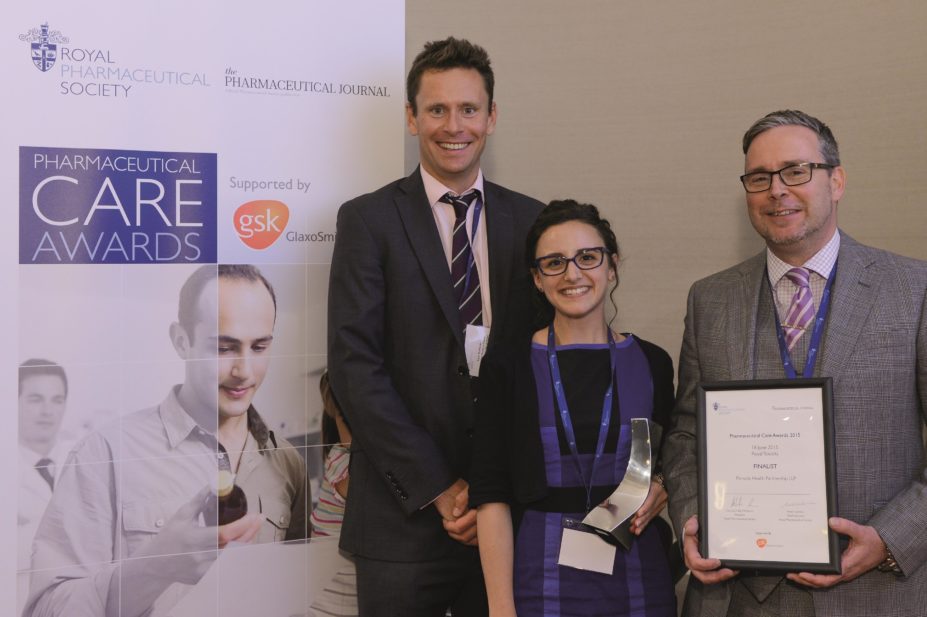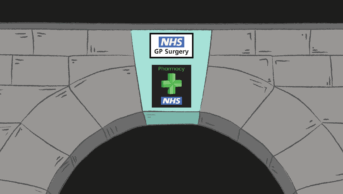
Simon Wright / The Pharmaceutical Journal
Community pharmacists have the potential to identify people with undiagnosed hepatitis C infection, according to research published in
Clinical Pharmacist
[1]
(online, 5 August 2016).
In 22 pharmacies on the Isle of Wight, community pharmacists were trained to offer dry blood spot tests to anyone attending needle exchange and opiate substitution therapy. People were also encouraged to self-refer for the service by a publicity campaign.
The pilot project performed tests on 88 at-risk adults for hepatitis C virus (HCV), hepatitis B (HBV), HIV and syphilis over a nine-month period from September 2014 to May 2015.
The researchers found that 39 of the 88 adults were drug users. Of these, 17 users had not accessed the island’s drug support centre – the recovery integrated service – and were also less likely to have had a previous test compared with those who were registered with mainstream drug support services (77% versus 41%, P=0.04).
“The provision of pharmacy-based testing more than trebled the number of tests for HCV undertaken in community open access settings during the pilot period and provides additional capacity for testing in the future,” the researchers say.
“Pharmacy-based testing has the potential to reach at-risk individuals who are not tested for HCV elsewhere. When combined with integrated specialist referral, it has the potential to reduce the burden of undiagnosed HCV and engage new diagnoses directly with specialist care.”
Individuals who had a positive test for HBV surface antigen or HCV RNA were given a point-of-diagnosis consultation with a member of the specialist hepatology team in the pharmacy at an arranged date, which involved further tests and examinations.
People were referred for liver imaging and HCV treatment as necessary; adults with positive tests for HIV and syphilis were referred to the local sexual health service.
During the same time period, the recovery integrated service performed similar dry blood tests on 34 patients, of whom 85% had a history of injecting drugs and 56% had been tested previously.
Some 7% of tests carried out in the pharmacy and 9% of those carried out at the island’s recovery integrated service were positive for HCV RNA.
The average age of people screened by the pharmacist was 40 years and 54% of those screened were men. Around 18% (16 people) of tested individuals presented as a result of a publicity campaign while the remainder were recruited directly by pharmacists.
“We have demonstrated that pharmacies are able to reach patients with more diverse risk factors, who are not engaged with, and are therefore less likely to have been tested at, other services,” the researchers say. “This may be because of the inherently non-stigmatising nature of community pharmacies and the co-provision of a range of other services, such as routine prescriptions and needle exchange.
The pilot, they say, also illustrates successful collaboration between pharmacists and hepatologists to provide “readily accessible, community services for patients with HCV and thereby secure patient engagement at the beginning of their care pathway”. Researchers believe that if the pilot was rolled out it would have the potential to identify many patients with HCV across the UK.
Rachel Halford, deputy chief executive of charity The Hepatitis C Trust, welcomes the report. “It adds to the evidence that community pharmacies could be playing a key role in finding the 100,000 people thought to be living unknowingly with hepatitis C in the UK and ensuring those newly diagnosed are on the path to treatment,” she says.
“The proposed cut to community pharmacy funding is concerning, it will likely limit the impact pharmacists would be able to play in the UK’s commitment to the elimination of this disease as a threat to public health.”
Kevin Noble, a community pharmacist who was involved in the study, says an NHS culture change is needed to allow the model to reach its potential nationally.
“The idea [behind this service] isn’t rocket science. Community pharmacists are running needle exchange services already and needle exchange users are a primary risk of HCV,” he says.
Ryan Buchanan, hepatology research fellow at the University of Southampton who was also involved in the project, says community pharmacy was “a really nice environment to work in and was much better from the perspective of the patient”.
“The only downside was that only two of the pharmacies had beds in the treatment rooms so potentially examinations were quite limited,” says Buchanan. “But these pharmacists have a fantastic relationship with these patients who are really quite chaotic. The pharmacists are well known to them and have their confidence and trust.”
References
[1] Buchanan R, Hassan-Hicks P, Noble K et al. Integrating community pharmacy testing for hepatitis C with specialist care. Clinical Pharmacist 2016;8:243–247. doi: 10.1211/CP.2016.20201549


